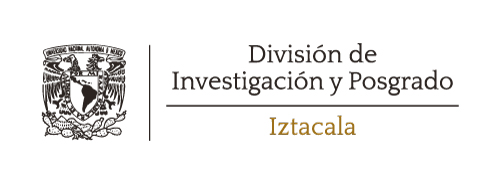
| Location within campus: | Cubicle 20, Second Floor, Tutoring Tower |
| Head of Laboratory: | Dr. Ricardo Sánchez Medina Full Professor A ricardo.sanchez@iztacala.unam.mx |
| Researchers affiliated to the laboratory: | Dr. Consuelo Rubi Rosales Piña rubi.rosales@iztacala.unam.mx B.S Dulce Maria Velasco Hernández dulce.velasco@iztacala.unam.mx Dr. David Javier Enríquez Negrete david.enriquez@iztacala.unam.mx Dr. Sandra Ivonne Muñoz Maldonado sandra.munoz@iztacala.unam.mx Dr. Esperanza Guarneros Reyes esperanzagr@iztacala.unam.mx Ms. Laura Edith Pérez Laborde edith.perez@iztacala.unam.mx |
| Research lines per researcher: | Promotion of Sexual Health in Incarcerated Populations, Assessment of Sexual Health in School Settings, Assessment and Intervention to Promote Condom Use Among Men Who Have Sex with Men (MSM), Assessment of Quality of Life and Sexual Behavior in HIV-Positive Populations, Design of Self-Paced Online Courses in Research and Health Psychology. |

Research is primarily focused on promoting sexual health in various high-risk contexts, including incarcerated populations, men who have sex with men, people living with HIV, students at any educational level, among others. This involves conducting diagnostic evaluations, sometimes utilizing validated instruments and other times designing and validating new ones. Based on these evaluations, interventions are designed primarily to promote sexual health through condom use. These interventions are delivered through in-person and virtual methods to assess their effectiveness. Additionally, the laboratory develops various self-paced online courses in two major areas: research and sexual health. In the research domain, courses on instrument validation have been developed, while in the sexual health domain, courses on health models applied to sexual health, quality of life, and adherence to treatment in people with HIV have been created.

(1) Sánchez, R., de la Rosa, A., Enríquez, D. & Velasco, D. (2020). Predictores del uso del condón en mujeres privadas de la libertad. Alternativas en Psicología, XXIV(44), 134-149. https://alternativas.me/2-uncategorised/232-predictores-del-uso-del-condon-en-mujeres-privadas-de-la-libertad
(2) Sánchez, R., Enríquez, D. & Rosales, R. (2019). Información, motivación y habilidades conductuales asociadas al uso del condón en la última relación sexual en hombres privados de la libertad. Revista Persona, 22(1), 37-52. doi: 10.26439/persona2019.n022(1).4082 https://dialnet.unirioja.es/servlet/articulo?codigo=7159104
(3) Rosales, R., Sánchez, R. & Muñoz, S. (2019). Escala de aprendizaje autogestivo en estudiantes universitarios de la carrera de psicología de un sistema en línea. Hamut´ay, 6(2), 102-125. doi: http://dx.doi.org/10.21503/hamu.v6i2.1778 http://revistas.uap.edu.pe/ojs/index.php/HAMUT/article/view/1778
(4) Enríquez, D., Sánchez, R., Arias, B., & Robles, S. (2018). Diferencias entre hombres y mujeres en el significado psicológico de las prácticas de socialización sexual fraternas. Actualidades en Psicología, 33(126), 51-68. Doi: https://doi.org/10.15517/ap.v33i126.31841 https://www.scielo.sa.cr/scielo.php?script=sci_abstract&pid=S2215-35352019000100050&lng=en&nrm=iso&tlng=es
(5) Sánchez, R., Muñoz, S. & Gómez, F. (2018). Diferencias en estrés, afrontamiento y emociones entre dos grupos etarios de hombres que tienen sexo con hombres. Revista Puertorriqueña de Psicología, 29(1), 74-85. http://www.ojs.repsasppr.net/index.php/reps/article/view/347

| Entry profile of potential thesis students: | Psychology students from the on-campus and distance education systems, starting from the seventh semester onwards, should have initiative and an interest in research, particularly in sexual health or distance education. In some projects, there is a possibility of a scholarship, so in those cases, being a regular student with a GPA of 8 or higher is required. |

